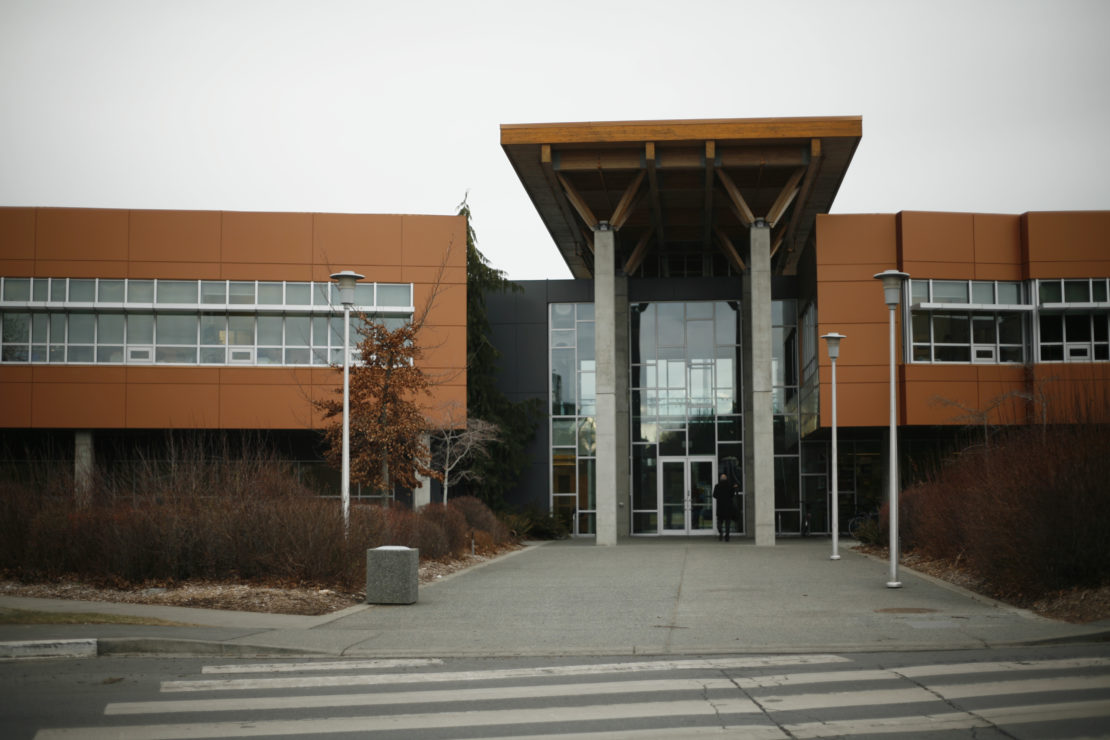
International student tuition has been raised substantially over last three years, including increases of 20 and 15 per cent in 2018 and 2019 respectively
The University of Victoria Board of Governors voted on March 30 to approve the university’s operating budget for 2021-22, as well as its budget framework for the next three years. Once again, the budget included tuition increases for all students as well as funding for bursaries, mental health supports, and an associate vice-president Indigenous.
Kuehne says that the budget will also focus on sustainability including ways to reduce GHG emissions and the carbon intensity of their investments.
— The Martlet (@TheMartlet) March 30, 2021
The budget increased tuition for domestic students by two per cent, the maximum permitted by the province. However, it increased international tuition by 3.75 per cent, in line with what the board says are the costs of inflation. UVic increased tuition for international undergraduate students by 20 per cent in 2018, 15 per cent in 2019, and 3.75 per cent in 2020.
The budget proposes a 2% increase in tuition for domestic students and 3.75% for international students. The board says that these increases are needed to keep up with the cost of inflation and of their programs.
— The Martlet (@TheMartlet) March 30, 2021
The continuous rise in international tuition has been the source of protests on campus in the past, including a blockade of the senate chambers in 2019 by students. With the pandemic limiting on-campus activity this year, students were unable to attend the budget meeting in person, although it was available to watch online.
At the meeting, UVic President Kevin Hall called the budget fair and said that the process for determining the budget was the most transparent he has seen in his career. He touted the town halls the administration has been conducting as well as meetings with key stakeholders as measures the university has taken to educate the university community about the budget.
“The consultation that goes on both at the leadership table around our senior leadership at the university and across campus really is to be commended,” said Hall.
Student representatives Juliet Watts and Kate Fairley were the only board members to vote against the budget.
Student Representative Juliet Watts says she will vote against the budget as she says it is unfair to increase tuition during a global pandemic. Despite this, the motion passes. The other student representative Katherine Fairley also votes against the motion.
— The Martlet (@TheMartlet) March 30, 2021
“I can’t support tuition increases during a pandemic in good faith,” Watts said during the meeting.
Watts said that the board should support a recent proposal by Dipayan Nag, the UVSS’s director of international student relations. Nag asked the board to freeze international tuition for the upcoming year and to limit tuition increases for international students to two per cent, the same as domestic students, for the next two years.
International students have faced unique struggles in the pandemic, such as visa restrictions that limit job opportunities and the increasing costs of living coupled with high tuition. Tuition and fees for two semesters for an international undergraduate student amounted to almost $27 000 in 2020-21. Even prior to the pandemic, the UVSS Food Bank and Free Store reported that over 40 per cent of their clients were international students.
During the meeting, UVic Associate Vice-President Student Affairs Jim Dunsdon noted that the university has made efforts to assist international students during COVID-19. This has included immigration and quarantine supports as well as bursaries.
Besides raising tuition, the budget sets the direction for the university’s finances through 2024. It allocates 64 per cent of expenditures to academic programs and salaries. The majority of that budget will be funded by provincial grants and undergraduate tuition.
64% of the budget will go towards academics including the salaries of staff and faculty. The budget also proposes shifting funds to make up for shortfalls due to COVID-19.
— The Martlet (@TheMartlet) March 30, 2021
Despite the announcement of a $630 000 provincial grant for graduate scholarships, Hall said it is unlikely the university will receive any further provincial or federal grants due to the economic recession currently impacting Canada.
Now on to Finance. Hall says the university is in good financial shape due to good planning and that the federal and provincial budgets won’t take away from the university but also won’t provide opportunities for additional funds.
— The Martlet (@TheMartlet) March 30, 2021
Other notable budget items include increased funding for bursaries, particularly for Indigenous students, and mental health supports. These include the New Student Connect program, which began this year and connects first-year students with their peers, as well as the continued operation of the new Student Wellness Centre. Additionally, the university is funding a new associate vice-president Indigenous position which will be taken up by Qwul’sih’yah’maht (Robina Thomas) at the end of April.







